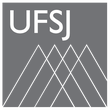Banca de DEFESA: JUCELIA DO PATROCINIO SILVERIO
Uma banca de DEFESA de MESTRADO foi cadastrada pelo programa.STUDENT : JUCELIA DO PATROCINIO SILVERIO
DATE: 29/11/2023
TIME: 09:00
LOCAL: Google meet
TITLE:
DIDACTIC SEQUENCE ORIENTED FOR ACTIONS IN THE ANTHROPOCENE: INVESTIGATING THE WATER CYCLE AROUND THE STATE SCHOOL BRIGHENTI CESARE
KEY WORDS:
Anthropocene; Following teaching; Actor-Network Theory; Science teaching.
PAGES: 85
BIG AREA: Ciências Humanas
AREA: Educação
SUMMARY:
This work aims to present a process for developing a Didactic Sequence (DS) based on urgent
environmental issues and identified by members of a school community. Our focus was on
verifying the sociomaterialities constructed through DS around the environmental problem
identified by the class. We think about the relationships between human beings and the planet,
guided by recent discussions that refer to the Anthropocene, a possible new geological epoch,
in which human action is the main force acting in the modification and transformation of the
planet. From the field of didactics, we rely on theoretical formulations developed on Didactic
Sequences (DSs), which advocate the organization of teaching proposals centered on certain
pedagogical objectives. In addition to these, our theoretical-methodological repertoire is
composed of the Actor-Network Theory, which understands that there is no hierarchy between
humans and non-humans in the composition of the social, thus defining it as a peculiar
movement of association between different entities. The field of investigation took place in a
state public school, located in the municipality of São João del-Rei, M.G., where the teacher-
researcher also teaches Science content. Based on the identification of an urgent socio-
environmental issue, the theme of the water cycle and the occurrence of floods was selected for
the DS content. DS was developed in seven stages plus a preliminary moment, consisting of the
following: o) Previous moment - with the aim of understanding the students' perspective on the
water cycle; i) Moment I - to identify the problem situation regarding some water realities –
flooding; ii) Moment II - theoretical and conceptual basis on the study topic; iii) Moment III -
focused on extending the location and broadening the students' view of the problem; iv)
Moment IV - collection of responses in groups; v) Moment V - presentation of the conclusions
found; vi) Moment VI - to synthesize and generalize all conclusions and, vii) Moment VII – to
systematize knowledge with a path towards political action. Data were collected through
participant observation and recorded through photographs, audios, videos and written work by
students. To analyze the data when building the networks, we used Gephi and Force Atlas 2
software. Our results indicate that three realities emerged from the data. In the first, the problem
situation experienced by the students is articulated in a more localized and intimate
performance. In the second reality, apprentices' performances of action and political
enlightenment emerge. Finally, in the third reality, the problem goes beyond the local, having
global repercussions and relating to human action on the planet. We therefore conclude that the
potential of Didactic Sequences, as a teaching practice, is capable of promoting political
protagonism for learners.
BANKING MEMBERS:
Externo à Instituição - FABIO AUGUSTO RODRIGUES E SILVA - UFOP
Presidente - 1927311 - GABRIEL MENEZES VIANA
Interno - 1357619 - RICARDO PEREIRA SEPINI




